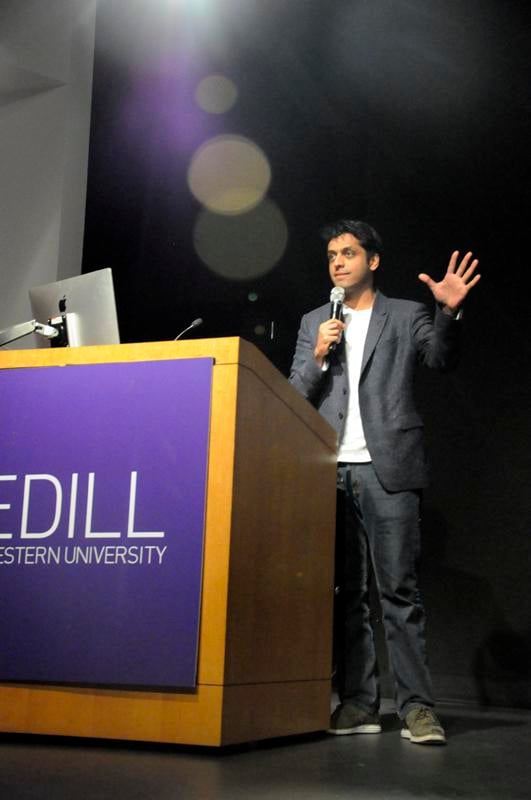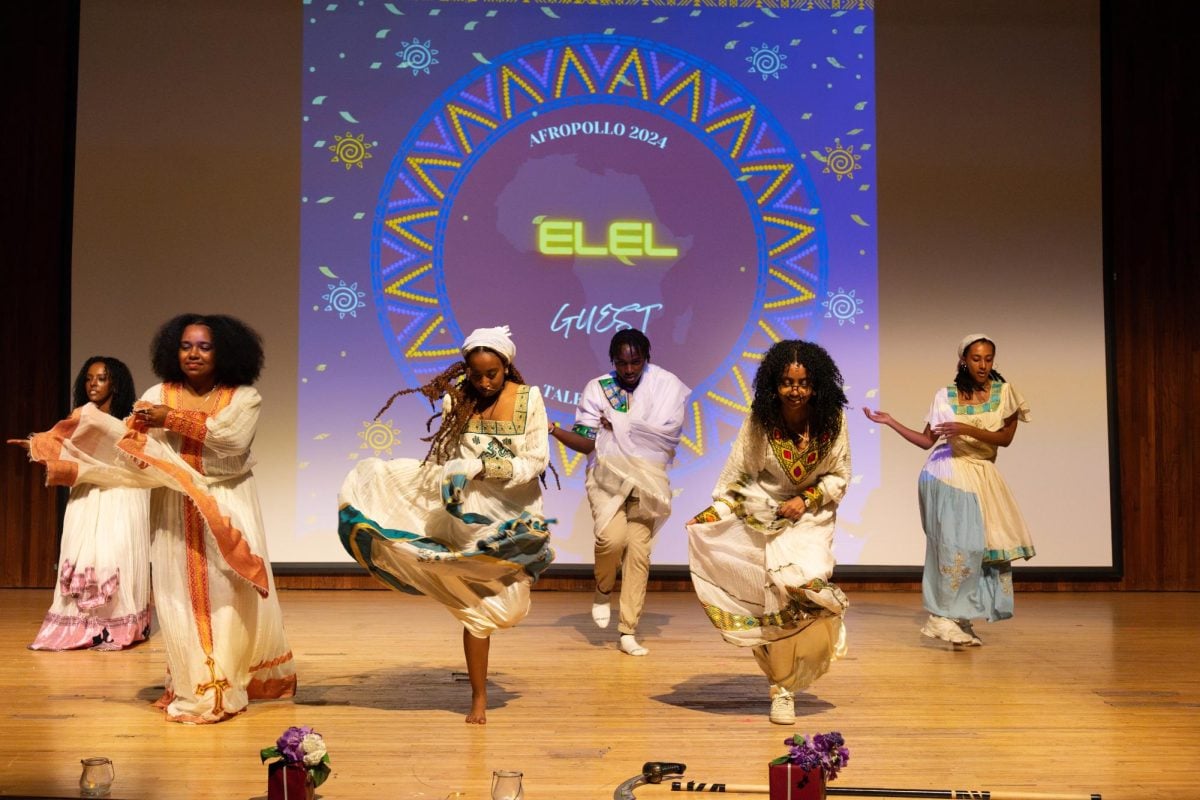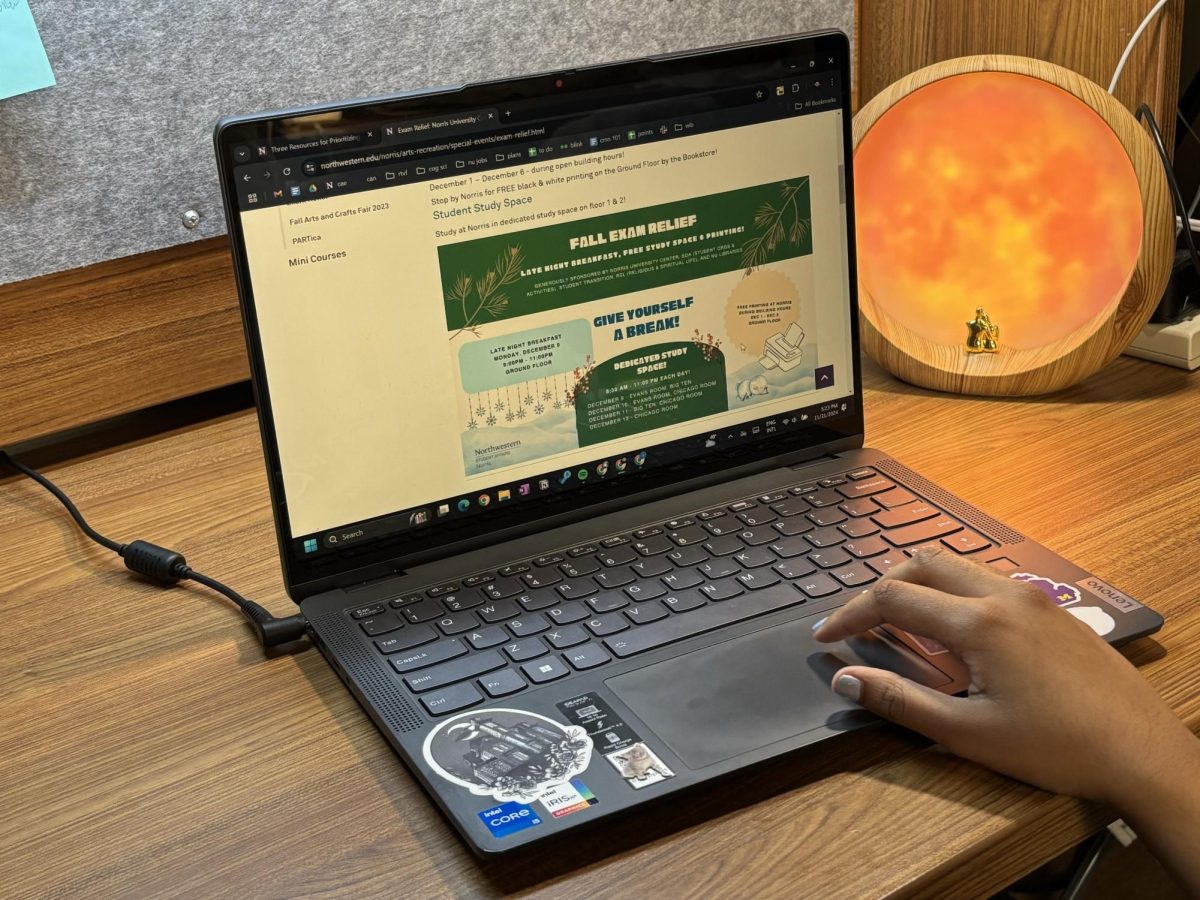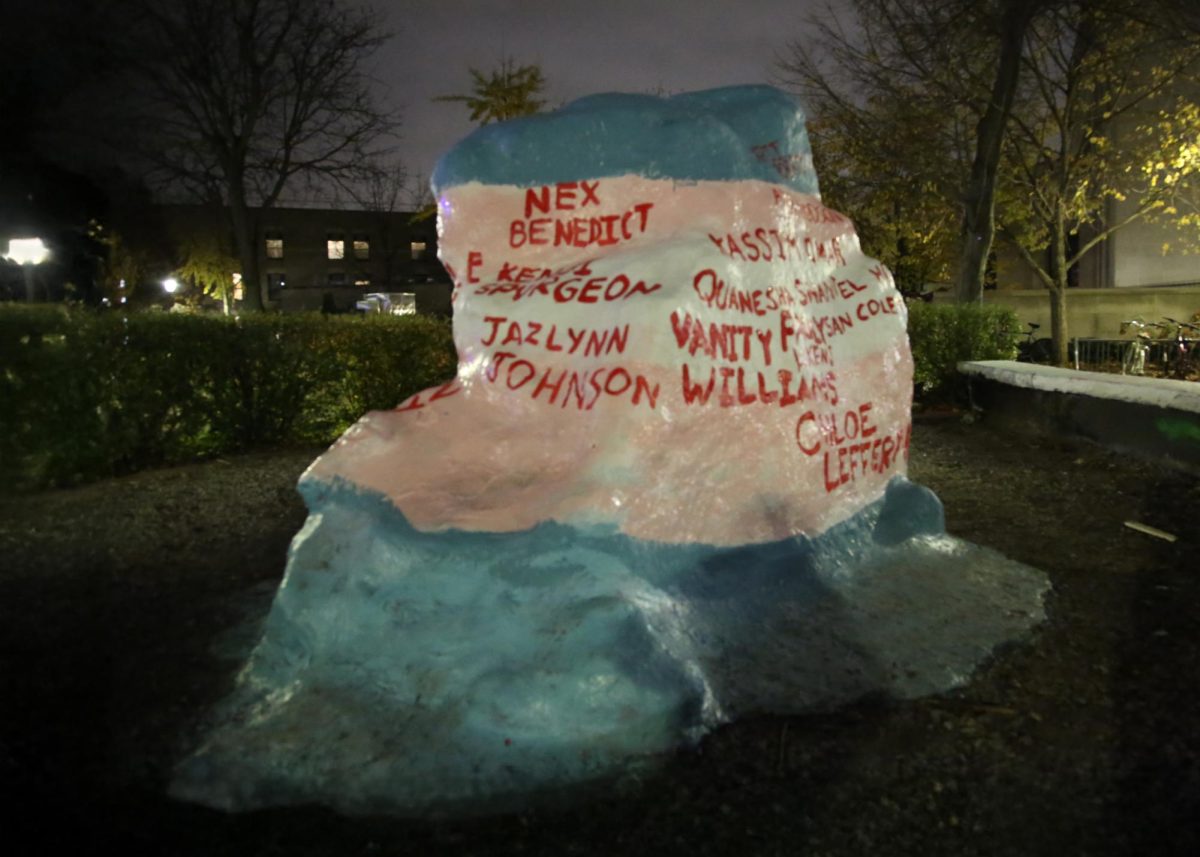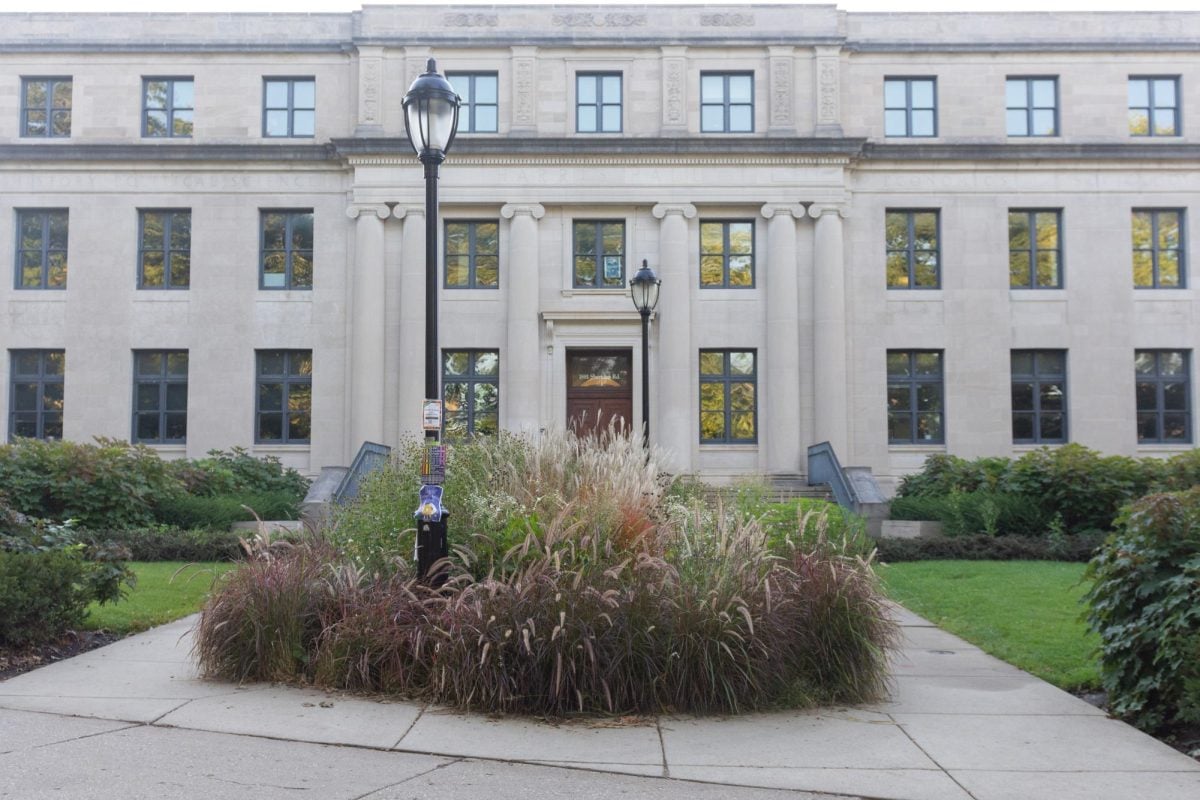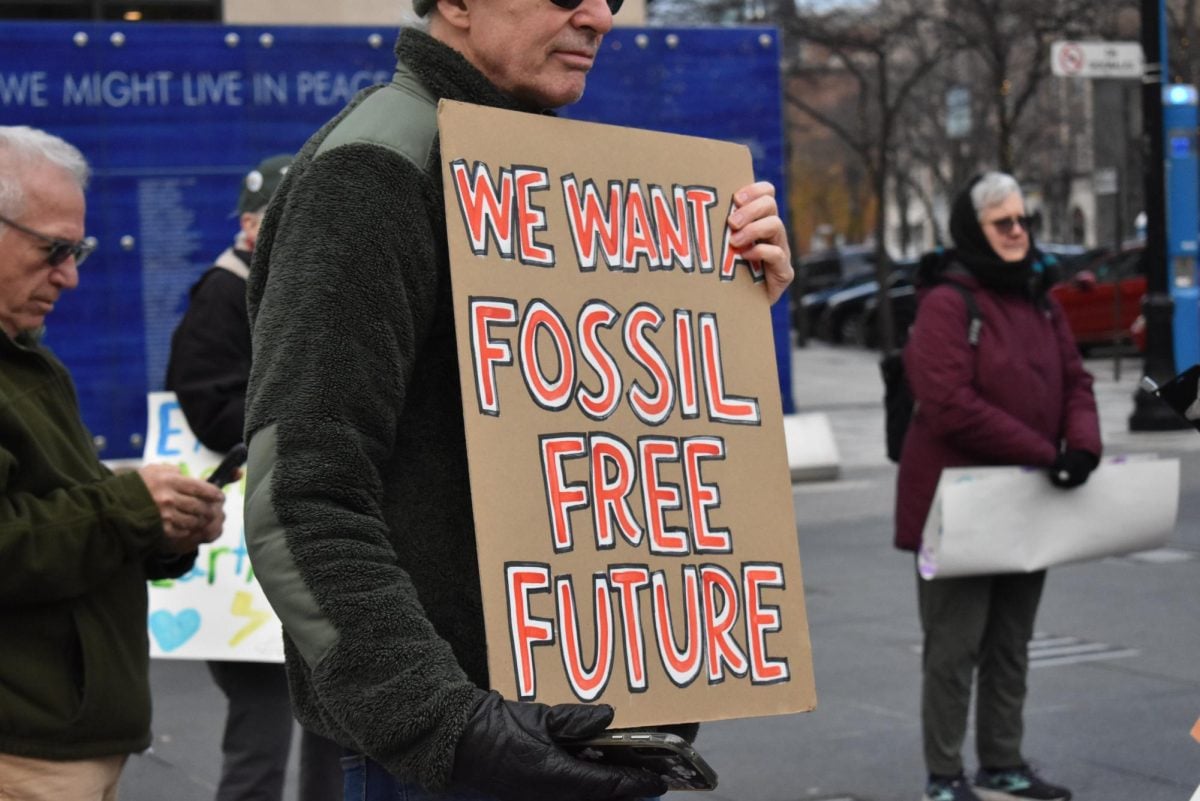A panel of Muslim religious leaders, scholars and writers discussed the meaning of faith and religion in the 21st century on Thursday at the McCormick Tribune Center.
The event, attended by about 200 students and community members, was organized by the Muslim-cultural Students Association. Educator and writer Hind Makki moderated as Imam Suhaib Webb, journalist Haroon Moghul and playwright Wajahat Ali attempted to answer the question of whether religion still matters in the post-modern world.
Moghul opened the discussion by coming straight out and answering that it does not. Despite being religious himself, he said that given religion’s trajectory in America and the western world, it is becoming increasingly easier to envision a world in which God plays no defining role.
“For people who define themselves by faith … the idea of orienting yourself around God will become more and more ridiculous,” he said.
Moghul argued that people are no longer connecting with religion in its traditional, institutionalized form, and the idea of religion as a moral discourse has collapsed. However, he offered hope to the audience by saying that the rise of atheism forces those who are religious to think more deeply about their beliefs.
“It’s kind of liberating,” he said. “You are forced to ask yourself why you do what you do. … Define what religion really means to you.”
Ali, a host on Al Jazeera America, echoed Moghul’s concerns.
“If religion in the post-modern world was an iPhone app, it would be Apple maps — it’s glitchy … and it leads you in the wrong direction,” he said.
Ali said the problem is not a lack of faith among young people. Citing a recent Gallup poll, he argued that millennials believe in a god but prefer being atheist or agnostic over taking part in any specific religion. Ali further asserted that the religions themselves are at fault for focusing too much on rules and exclusivity and not enough on community and openness.
“Instead of being open houses of worship that nurture the spirit of faith … religion is now a self-isolating cocoon for the elite,” he said.
Webb, a Muslim religious leader, said the solution to the problem of religion’s declining relevancy in the 21st century is to draw a distinction between faith and religion.
“It’s about a community transformation,” he said. “We need to reconstruct our communities to be based on faith instead of religion.”
As religion exists now, there is too much emphasis on fear mongering and preserving the status quo, he said.
“Everything becomes a sense of fear, and that leads to peddling a theology that’s extremely cheap,” Webb said.
The panel ended with a brief question-and-answer session during which Makki asked the three speakers questions submitted by the audience.
McCormick senior Jahan Alam, who attended the panel, said he appreciated the diversity of the speakers. Webb is a convert to Islam, and Ali is a Muslim American of Pakistani descent.
“It was good in the sense that it wasn’t specifically about Islam, and everyone had their own perspectives,” he said. “But even with the different perspectives, they all shared the same message of what was important in life, not just religion but faith.”
Email: [email protected]
Twitter: @amykwhyte
